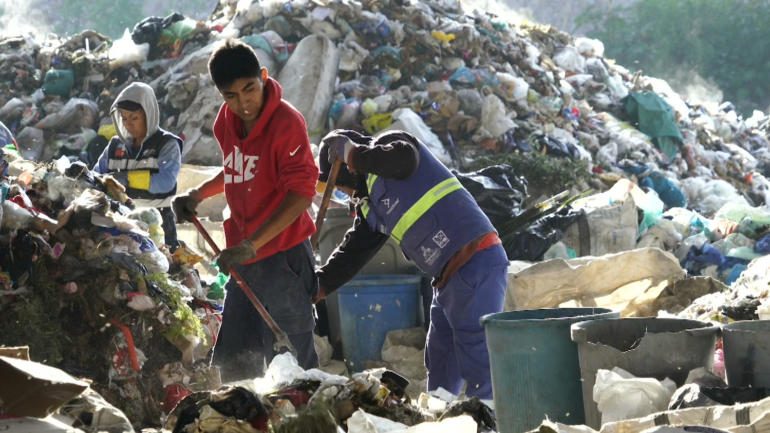Recycling is an increasingly important topic in a world faced by global warming and waste issues. And in Mexico, one group is beginning to look at ways to encourage proper waste management, through the very people who already depend on it for a living.
CGTN’s Alasdair Baverstock reports.
Mayra Jimenez from the town of Huajuapan in Mexico’s impoverished Oaxaca State, separates trash for a living.
A decade of experience has taught her what’s valuable and what’s not, and working 10 hours a day, she provides for her family.
“It’s difficult work,” she says, “but it’s a job that allows me to give my family stability. I can bring my income home, feed my children and cover my needs in the house.”
Mayra’s job may seem humble, but she plays a critical role in Mexico’s recycling process.
Here in Huajuapan, in Oaxaca State for example, all of the waste that reaches this recycling center is separated by hand. It’s a similar story across Oaxaca State, and much of the country.
The waste processing center director Susana Cruz is well aware of the shared value they bring.
“The recycling workers take charge of what can be sold as recycling material, as well as compost, and what’s left goes into landfill,” says Susana. “For the recycling workers this is their income, and their families depend on it, so mothers, fathers and children all come here to work.”
Yet, conditions are difficult. One non-governmental organization in Oaxaca named SiKanda estimates that while 95% of the material recycled in Mexico reaches the recycling process through these informal workers, they receive just 5% of the total profits.
As a result, the organization has worked to dramatically improve their working conditions. Building structures to shade them from the hot sun, equip them with protective clothing and a clean place to eat on their breaks.
It’s run by Barbara Lazcano. “In reality, these are people who live in poverty, who work in very difficult conditions, and are offered few opportunities to strengthen other skills or improve their working conditions. So SiKanda has joined their project with a view towards defending the rights of these recycling workers, and improve the recycling process as we do so.”
Workers like Mayra earn a living from recycling, seeing the value in society’s waste, and organizations like SiKanda, hope that society will begin to see the valuable role they play in the sector.
 CGTN America
CGTN America

